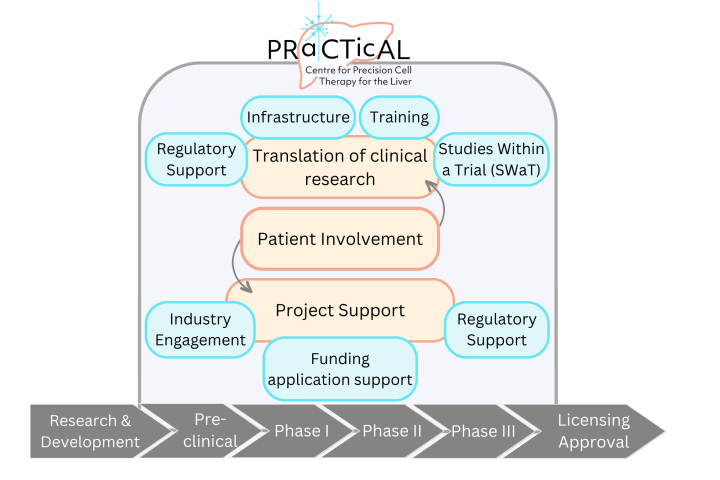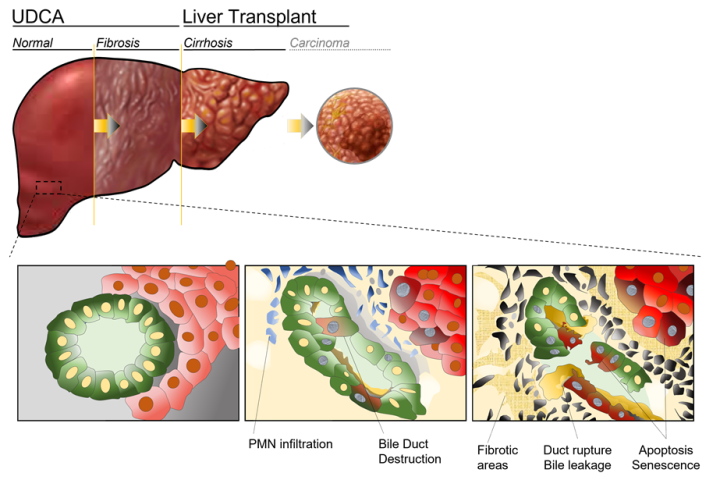Centre for Precision Cell Therapy for the Liver (PRaCTicAL)
PRaCTicAL will accelerate the translation of precision cell therapies for the liver, from the University bench through to adoption in NHS Scotland.
Drawing on the expertise and experience of the stakeholders, the Centre will accelerate the translation of precision cell therapies for the liver, from the University bench, through technology transfer, GMP manufacture to adoption in NHS Scotland. By bringing together clinicians, scientists and professional support from across NHS Lothian, the University of Edinburgh, the Scottish National Blood Transfusion Service and the Cell and Gene Therapy Catapult, the Centre for Precision Cell Therapy for the Liver (PRaCTicAL) aims to develop new products for the treatment of liver disease and Type I diabetes and boost our ability to perform liver related clinical trials in Scotland.

About the Centre

Since 1970 the number of deaths due to liver disease have quadrupled and liver disease now represents the biggest cause of death of people aged 35 - 49.
A disease of inequality, liver disease disproportionately affects the poorest and most vulnerable people in society. People who live in deprived areas are up to six-times more likely to die of liver disease than those who live in wealthier areas.
Cirrhotic liver disease often results in liver cirrhosis, for which there are currently no specific medical treatments. Liver transplantation is a cure, but this only remains an option for a small number of patients due to the availability of suitable donated organs. A global shortage of donor organs means that many patients die waiting for a transplant. The low supply and increased demand for donated organs means alternative treatments are urgently required.
Each condition causing liver damage involves different disease processes, so a ‘precision medicine’ approach is required for each liver disease. The Centre brings together experts with experience in research and treatment of acute liver failure, liver cirrhosis, biliary disease and injury and islet transplantation for the treatment of type I diabetes. Using cell and gene therapies (known as Advanced Therapy Medicinal Products, ATMPs) to treat these conditions offers the ability to precisely fix biological defects in damaged organs and is now providing cures in previously untreatable diseases.
Building on our skills and facilities, and funding provided by the Chief Scientist Office under the Precision Medicine Alliance for Scotland scheme, we will use precise advanced therapies to target the liver to treat severe liver disease and type I diabetes, reduce mortality and morbidity and the need for liver transplantation. This will serve the Scottish population and be a platform for the delivery of these novel therapies.
This research will tackle health conditions of major importance in Scotland, including diseases that disproportionately impact on those at risk of socioeconomic disadvantage. The results will help form a basis for us to look at how treatments can be targeted at those suffering from conditions which can be debilitating.
Contacts
For more information please email:

